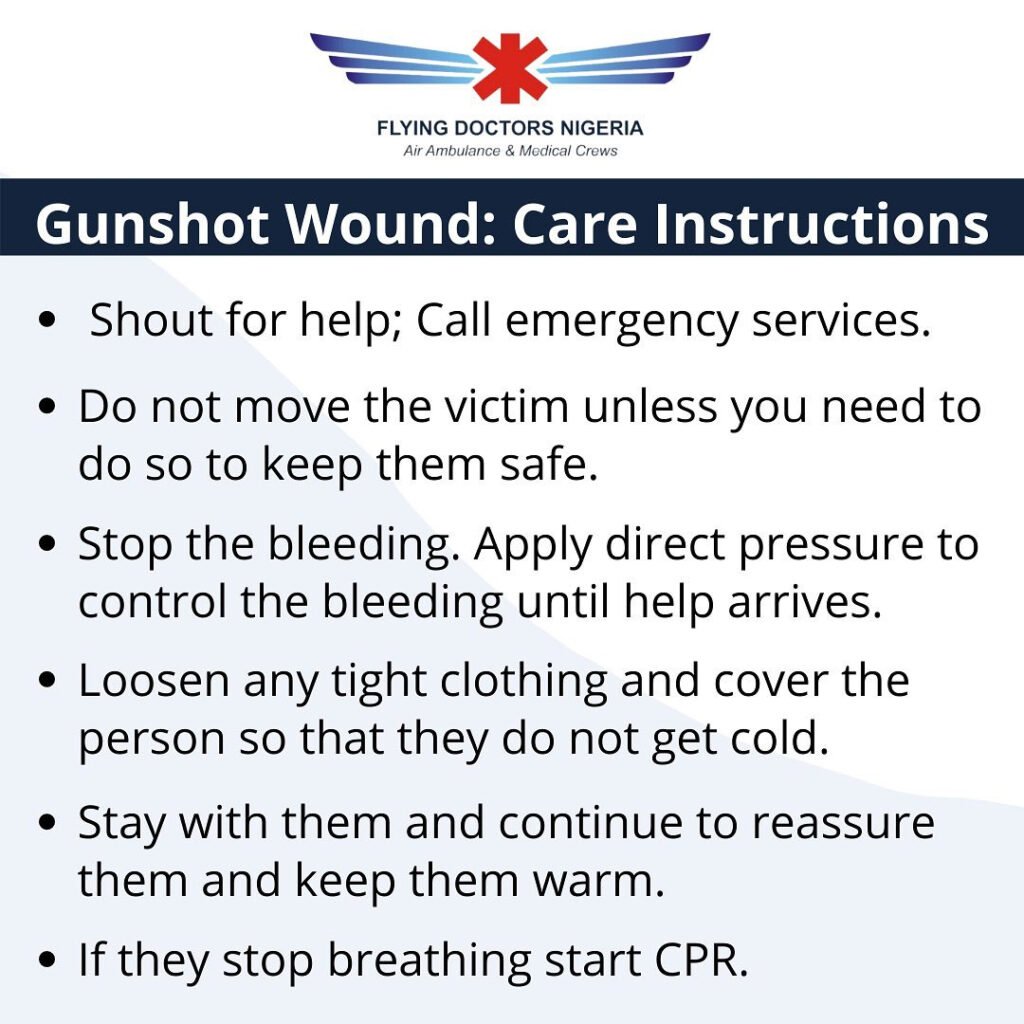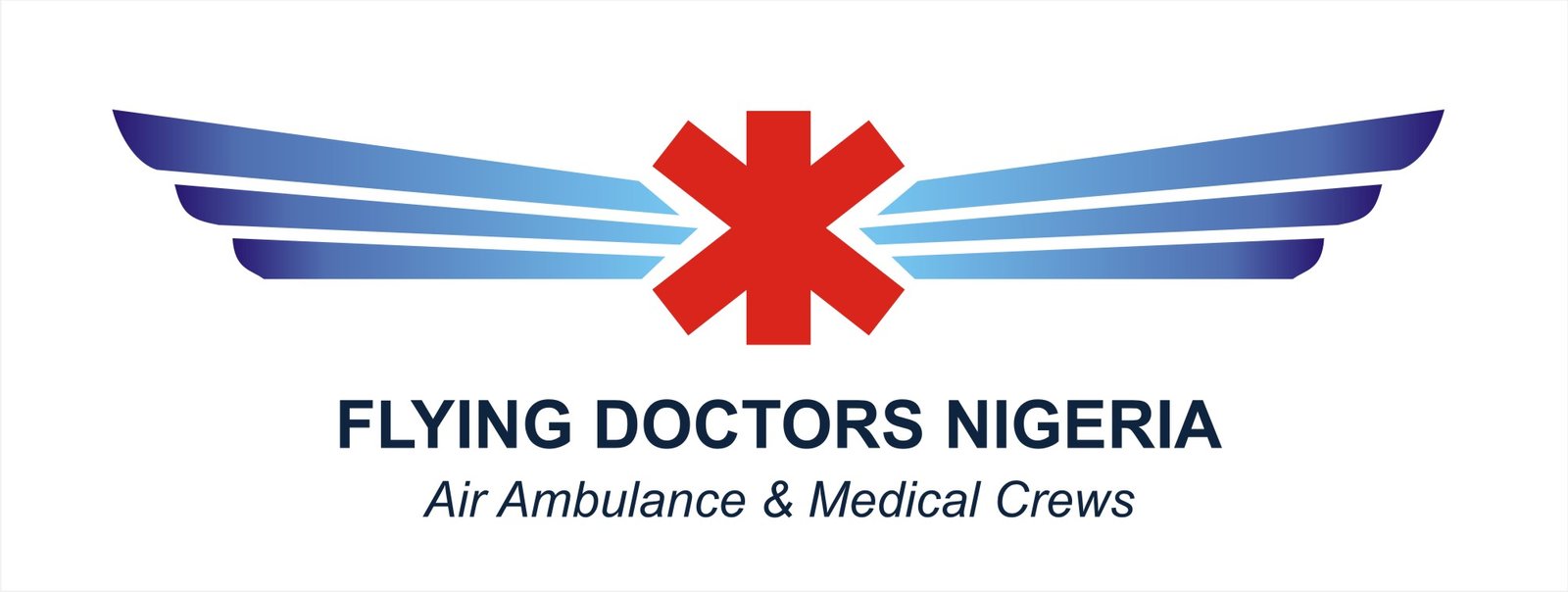Injuries represent 12% of the global disease burden and the third most common cause of death globally. Gunshot injuries (GSIs) contribute significantly to the global disease burden arising from injuries. Globally, the incidence of GSIs has been on the increase.
In Nigeria, GSIs are the third leading cause of injury after road traffic crashes and falls, and the second leading cause of injury-related deaths. The ongoing protests in various locations in Nigeria is an unfortunate example that gunshot injuries can happen anywhere and anytime. It is therefore important to know what to do, in case of a gunshot emergency.
If someone with you has been shot, it is most important to make sure it is safe for you to approach the victim. Do you know if the person who did the shooting is still around? If in any doubt, you are advised not to approach the victim. Other things to note during a gunshot incidence are:
1. Call for help– Call the emergency services and let them know that it is a gunshot wound.
2. Do not move the casualty unless you need to do so to keep him safe or so that you have space to treat him. Moving could aggravate a spinal injury.
3. Stop the bleeding– Apply direct pressure to control the bleeding. Use what you have to hand, cloth, bandage, or gauze and press directly against the wound using the palm of your hand. (Protect yourself with gloves if you have them to hand) Continue with pressure until help arrives. Speed is of the essence. Victims who reach the A & E during the “Golden Hour” have a much better likelihood of surviving. Try to keep your movements swift without making the person feel more upset or panicked.
4. Shock – Gunshot wounds frequently lead to shock due to severe uncontrolled bleeding. Cover the person so that they do not get cold. Loosen any tight clothing and use whatever is to hand coat, blanket, and jumpers to put over them. If possible elevate the legs but if you think they may have a spinal injury or a wound in the torso then refrain from doing this.
5. Stay with them and continue to reassure them – tell them they are ok and that help is coming and explain to them what you are doing. Try to keep them talking to you. Do not remove any of the cover clothes, keep them warm
6. If they stop breathing, start CPR

About Us :
The Flying Doctors Nigeria is a member of the British Safety Council that specializes in providing medical solutions such as air ambulance and medical evacuation, ground ambulance procurement and leasing, remote medical services such a medical staffing, online company clinic set-up, site clinic management, occupational health, medical evacuation insurance, and other health consultancy services for the oil & gas industry as well as other corporate, military and non-governmental organizations.
For information about how we can support your organization please: Email us on sales@flyingdoctorsnigeria.com, management@flyingdoctorsnigeria.com, doctors@flyingdoctorsnigeria.com, or call us on: 0700 FLYINGDRS/ 0700 3594 64377

